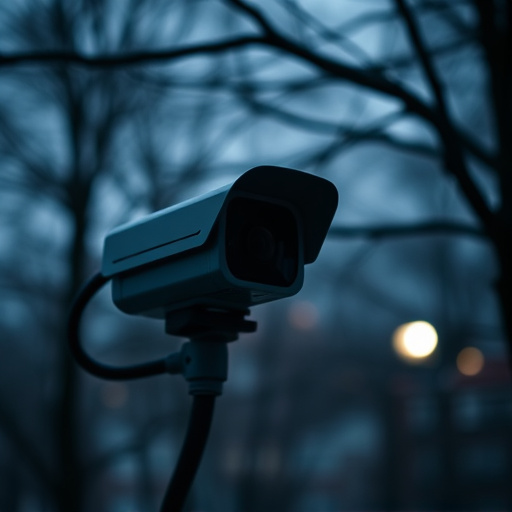Installing secret nanny cameras comes with significant legal implications, as laws regarding their use vary globally. Explicit consent from all individuals captured on camera is mandatory to avoid fines and reputation damage. Homeowners should consult local legislation and seek professional advice to ensure privacy rights are respected while adhering to relevant laws, especially in strategic locations like bathrooms, bedrooms, kitchens, and hallways where covert devices may be hidden.
Uncover common spots where hidden surveillance devices may be lurking—from secret nanny cameras to covert recording tools. This comprehensive guide navigates the legal boundaries surrounding these devices, highlighting key insights on the laws regarding secret nanny cameras and privacy rights. Learn about ethical considerations and discover where such devices are most frequently concealed within your own home. Stay informed to protect your personal space and understand your rights.
- Understanding Legal Boundaries: What You Need to Know About Nanny Cameras
- Common Locations for Hidden Surveillance Devices in the Home
- Ethical Considerations and Privacy Rights When Using Secret Cameras
Understanding Legal Boundaries: What You Need to Know About Nanny Cameras
Understanding Legal Boundaries: What You Need to Know About Nanny Cameras
In the age of advanced technology, hidden surveillance devices, commonly known as “nanny cameras,” have become an increasingly popular tool for homeowners seeking peace of mind. However, it’s crucial to navigate the legal landscape surrounding these devices to ensure compliance with privacy laws. The use of secret nanny cameras is regulated by strict regulations that vary across jurisdictions, making it essential to understand your rights and responsibilities before installing one.
The Laws Regarding Secret Nanny Cameras dictate that any form of surveillance in a private residence must adhere to specific guidelines. Typically, these laws require explicit consent from all individuals who might be captured on camera, especially if they are not the property owner or legal guardian. Installation without proper authorization can lead to severe legal repercussions, including fines and potential damage to one’s reputation. It’s advisable to consult local legislation and seek professional guidance to ensure your privacy rights are respected while utilizing this technology for safety and monitoring purposes.
Common Locations for Hidden Surveillance Devices in the Home
In the privacy-focused modern era, understanding common spots for hidden surveillance devices is essential, especially with laws regarding secret nanny cameras varying across regions. Many homeowners install cameras for security or monitoring purposes, but some individuals misuse them, leading to legal repercussions. Familiarizing yourself with these locations can help you spot potential covert devices and ensure your privacy rights are respected.
Within the home, hidden surveillance devices often find their way into strategic areas like bathrooms, bedrooms, kitchens, and hallways. Bathrooms, for instance, might have cameras disguised as everyday items like shampoo bottles or light switches. Bedrooms could host secret cameras in alarm clocks, picture frames, or even ceiling lights. Kitchens and hallways are also popular due to their high foot traffic, with devices cleverly hidden behind mirrors, under furniture, or inside electrical outlets. Being vigilant and checking these areas can help you maintain your privacy and ensure compliance with relevant laws regarding secret surveillance.
Ethical Considerations and Privacy Rights When Using Secret Cameras
The use of hidden surveillance devices, often referred to as “nanny cams,” raises significant ethical and legal questions. While these devices can provide a sense of security and peace of mind for parents or homeowners, they also infringe upon privacy rights. The laws regarding secret nanny cameras vary greatly depending on the jurisdiction, with some areas having strict regulations in place to protect individuals from unwarranted surveillance. It’s crucial to understand that placing hidden cameras without consent is often illegal and can lead to severe consequences, including civil lawsuits and criminal charges.
Privacy rights advocates argue that the proliferation of secret cameras erodes personal privacy and creates a culture of constant monitoring. Even in homes where there’s no expectation of privacy, like bathrooms or bedrooms, the presence of these devices can make individuals feel uneasy and paranoid. Ethical considerations demand that users of hidden surveillance devices ensure explicit consent from all parties involved and adhere to local laws to maintain a balance between security and privacy rights.
While hidden surveillance devices can offer peace of mind, it’s crucial to navigate this technology within legal boundaries. The laws regarding secret nanny cameras vary significantly, so understanding your region’s regulations is essential. Ethical considerations demand respect for privacy rights, making informed and responsible use paramount. Always prioritize open communication and consider alternative methods before resorting to hidden cameras. By doing so, you can ensure a safe environment while upholding the principles of trust and respect in your home.
